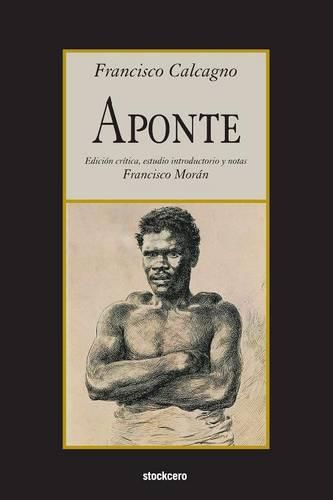Readings Newsletter
Become a Readings Member to make your shopping experience even easier.
Sign in or sign up for free!
You’re not far away from qualifying for FREE standard shipping within Australia
You’ve qualified for FREE standard shipping within Australia
The cart is loading…






This title is printed to order. This book may have been self-published. If so, we cannot guarantee the quality of the content. In the main most books will have gone through the editing process however some may not. We therefore suggest that you be aware of this before ordering this book. If in doubt check either the author or publisher’s details as we are unable to accept any returns unless they are faulty. Please contact us if you have any questions.
Francisco Calcagno was one of the most prolific authors of Cuban XIX century, and yet one of the less studied by critics and scholars. His novels focused on blacks are nonetheless essential to understand how the creole elites view blacks and the fears they felt about the influence of blacks in a Cuba white and Spaniard. What could it then better than to read Aponte, along with Prof. Moran’s insightful introductory study. There we find an excellent balance between history and fiction, archive material and criticism. In Prof. Francisco Moran’s skillful hands Calcagno’s novel becomes a literary dispositive that reveals the 19th Cuban culture, the cultural and identity politics that surrounded Calcagno, as well as the centrality of gender in the construction of otherness and the literary criticism as a passionate dialogical practice. If Aponte plunges us -unavoidably- in the bloody currents of Cuban racism, Moran’s generous and insightful introduction inspires us to cross borders, to make connections, and to challenge simplistic readings. Dear reader: whiting this book you will find two indispensable texts: a classical novel of Cuban literature and an eloquent and brilliant historical interpretation. The revisionist method used by Francisco Moran in his reading of Aponte is simply brilliant. Displaying the erudition of a historian, the skills of a philologist and the persistence of a detective, Moran launches a hard attack against inculcated in our culture, and the neglect suffered by a classical writer of our literature.
$9.00 standard shipping within Australia
FREE standard shipping within Australia for orders over $100.00
Express & International shipping calculated at checkout
This title is printed to order. This book may have been self-published. If so, we cannot guarantee the quality of the content. In the main most books will have gone through the editing process however some may not. We therefore suggest that you be aware of this before ordering this book. If in doubt check either the author or publisher’s details as we are unable to accept any returns unless they are faulty. Please contact us if you have any questions.
Francisco Calcagno was one of the most prolific authors of Cuban XIX century, and yet one of the less studied by critics and scholars. His novels focused on blacks are nonetheless essential to understand how the creole elites view blacks and the fears they felt about the influence of blacks in a Cuba white and Spaniard. What could it then better than to read Aponte, along with Prof. Moran’s insightful introductory study. There we find an excellent balance between history and fiction, archive material and criticism. In Prof. Francisco Moran’s skillful hands Calcagno’s novel becomes a literary dispositive that reveals the 19th Cuban culture, the cultural and identity politics that surrounded Calcagno, as well as the centrality of gender in the construction of otherness and the literary criticism as a passionate dialogical practice. If Aponte plunges us -unavoidably- in the bloody currents of Cuban racism, Moran’s generous and insightful introduction inspires us to cross borders, to make connections, and to challenge simplistic readings. Dear reader: whiting this book you will find two indispensable texts: a classical novel of Cuban literature and an eloquent and brilliant historical interpretation. The revisionist method used by Francisco Moran in his reading of Aponte is simply brilliant. Displaying the erudition of a historian, the skills of a philologist and the persistence of a detective, Moran launches a hard attack against inculcated in our culture, and the neglect suffered by a classical writer of our literature.